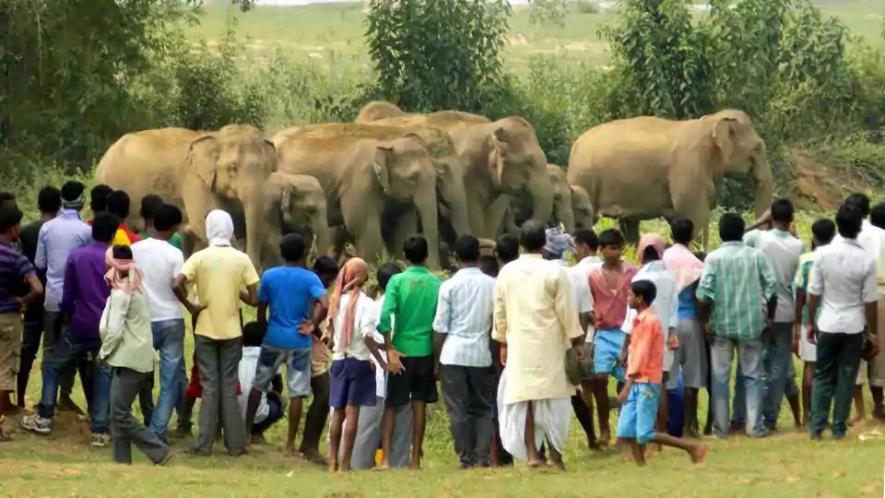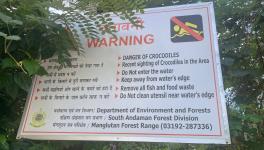Man-animal Conflict in C’garh Can Only Be Stopped by Human Intervention

Representational image. | Image Courtesy: Hindustan Times
Keshwar Singh, 30, has seen four of his family members die in an attack by herds of elephants since his childhood.
The attack of the elephants and the bears is a very common phenomenon in Udaipur area of Surguja district, which is about 25 km away from the district headquarters in Chhattisgarh.
Keshwar, a daily wager, living in the forest village of Ghat Barra says that last year, he lost his father and mother when they were attacked by an elephant while they were working in the farm.
According to the official figures with the state government of Chhattisgarh, close to 200 people have been killed in attacks by the elephants from January 1, 2013 to December 9, 2017, while these elephants have damaged over 7,000 houses and crops sprawling 33,000 hectares of land.
Keshwar says that there has been at least one death in all the 32 houses in his village due to attacks by the herds of the elephants.
“They attack during the day, and it can happen anytime because no one actually knows their location due to the dense forests and mountains in our area,” he says.
The daily wager further says that the government has also not taken any step to stop the man-animal conflict, and only bursting crackers, using chilli powder seems to be the solution left with the villagers.
“We cannot kill animals, but they are killing us. During the day, there are elephants, and during nights, there are bears. Sometimes, even the elephants attack during the night, when they do not get crops to eat in the fields. They also damage our houses,” he says, as he points a finger towards one of the houses damaged by a herd of the elephants just a few days ago.
In the recent attack, 70-year-old Shukulram Manjaur, and his wife Sundri Manjhaur, 65, were killed, and over half a dozen villagers sustained injuries while they tried to shoo the elephants, says Keshwar.
According to S P Singh Baghel, a wildlife officer with the Chhattisgarh Van Vibhag, the elephants and bears in Udaipur have developed the taste for crops, and they enjoy eating crops more than what they used to eat in the forests, in their natural habitat.
“It could be because the forest cover is shrinking, and now these elephants are being pushed out of their habitat. The other reason is that these elephants have become violent, and have come close to the villages because of the sound of the blasts that occur in the nearby coal mines. In that case, these elephants are frightened due to the loud sound, and they attack only to save themselves,” he says.
Apart from the elephants and bears, even stray bulls have become a cause of concern, as in November, three persons died in three separate attacks by the bulls.
Baghel says that the difficulty in controlling the elephants is monitoring their movements, as these elephants can walk up to 40 to 45 km in a day, and they can settle at any point in the forest area.
Baghel says that the priority of the Forest Department when the herd of the elephants gets settled near some village is to save human lives, and also the lives of the animals.
“We shift the people living near the forests in residential area to avoid the conflict, and then use different techniques to keep elephants away from the humans. But one of the major problems in maintaining the distance between the animals and humans is open defecation,” says Baghel, adding that even when the government is constructing many toilets, the villagers are not leaving their habit of defecating in open.
Most of the conflicts have happened when someone has stepped out to defecate in the open, he adds.
The forest official further says that maximum trouble happens when a herd of elephant settles for more than a week at one place, as it becomes very difficult to shoo them away.
Baghel says that the government pays Rs 1,01,900 as compensation when the house is damaged, and the compensation is Rs 4,00,000 for the loss of human life. Rs 9,000/hectare compensation is paid for the loss of crops.
Get the latest reports & analysis with people's perspective on Protests, movements & deep analytical videos, discussions of the current affairs in your Telegram app. Subscribe to NewsClick's Telegram channel & get Real-Time updates on stories, as they get published on our website.
























